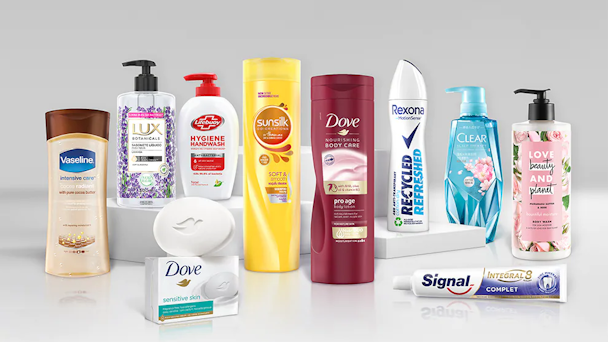Unilever, L’Oréal and others to develop environmental impact scoring system for cosmetics
Major cosmetics companies and brands including Unilever, Henkel, L’Oréal, LVMH and Natura & Co are looking to develop the first industry-wide environmental impact scoring system for beauty products as part of a new consortium across the beauty and cosmetics industries.

Major cosmetics companies are looking to develop the first industry-wide environmental impact scoring system for beauty products
The aim is to co-design an approach that is brand-agnostic and provides consumers with clear, transparent and comparable environmental impact information based on a common science-based methodology. They are inviting other cosmetics companies to join them in this pursuit.
The consortium’s end goal is to provide consumers with clear, transparent and comparable information about the environmental impact of the beauty products they use, ultimately supporting more sustainable shopping choices.
Sunny Jain, president of Unilever beauty and personal care, said: “Many of us want to make more considered choices in our lives, but it’s not always easy to know the environmental impact we are making through simple things like selecting which soap to buy, or which shampoo to use.
“This is where the new consortium can make a difference. Working alongside our peer companies, we’re aiming to provide people with easy-to-understand, transparent and comparable information, based on a robust scientific approach. This will support the 1 billion people who use our Unilever beauty and personal care products every day to make even more informed choices.”
The news comes at a crucial moment for the beauty industry in Europe, following the recent threats to the longstanding ban by the European Chemicals Agency’s (ECHA) Board of Appeal, which requires certain ingredients to be tested on animals before they’re used by humans.
How will it work?
It is proposed that the consortium will work with sustainability consultancy Quantis to ensure a robust and scientific approach, and that efforts to co-build the voluntary assessment methodology and scoring system are guided by and articulated around:
-
A common method for measuring environmental impacts throughout the life cycle of products, backed by the principles of the ‘Product Environmental Footprint’ (the European Union’s PEF scientific method for quantifying the environmental footprint of products);
-
A common database of environmental impacts of standard ingredients and raw materials used in formulas and packaging, as well as during product usage;
-
A common tool that enables each brand to calculate the environmental impact of individual products, usable by non-experts; and
-
A harmonized scoring system, for example using a score ranging from A to E, that enables the consumer to easily compare products. The methodology, data base, tool and scoring system will be verified by independent parties.
-
It will be up to each brand to individually decide how it wishes to disclose the environmental impact to consumers. A spokerperson from Unilever tells The Drum: "It will be down to each member company as to how they wish to communicate the impact to consumers, for example this could be on pack, via company websites, through a QR code, etc.
"For Unilever, we’re currently exploring how we will best communicate this with consumers in a way that is transparent, simple, easy to understand, and in line with local regulation, allowing consumers to quickly get the information they want to know."
What’s the aim?
-
This global initiative is intended to be open to all cosmetics companies, regardless of their size or resources. Other stakeholders will be informed and consulted throughout the process.
-
The convening five companies will pool their experience and knowledge in developing environmental impact assessment methodologies (as is the case for Henkel, LVMH, Natura &Co and Unilever) and an environmental and social labeling system (as developed by L’Oréal).
-
All companies will benefit from this pre-existing work and are invited to contribute their own experience. The consortium will also be consulting with external experts, including scientists, academics and NGOs, to ensure the ongoing integrity of the approach. The work developed by the consortium will be published and made accessible on a strictly voluntary basis by both consortium participants and all other interested parties.

